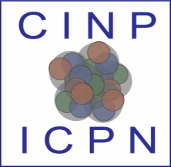University of Glasgow PDF positions
The Nuclear and Hadron Physics Group at the University of Glasgow, UK, seeks talented
candidates for two Postdoctoral Research Associate positions, each for 3 years, to make
leading contributions to the study of nucleon structure. Both positions will be divided
between the experimental programme at Jefferson Laboratory (JLab) in Virginia, USA, and R&D
for the Electron-Ion Collider (EIC), to be built at Brookhaven National Laboratory in New York
state, USA.
JLab is home to a 12 GeV electron beam accelerator and four experimental halls with
fixed-target experiments. The JLab experimental programme at Glasgow is focussed on studying
hadron structure through hard scattering of electrons from proton and light-nucleus targets in
Halls A, B and C and via hadron spectroscopy using a real photon beam in Hall D. The
centre-of-mass energies accessible at JLab probe mainly the valence quark region of the
nucleon. Access to the quark-gluon sea will be made possible by the EIC, the world's next
major hadron physics facility, the construction of which is due to begin in 2023. It will
collide polarised electrons with polarised protons, light ions and a full range of unpolarised
heavy nuclei. The project is at the stage of detector R&D and design and the Glasgow group has
leadership in both main detector proposals: ATHENA and ECCE.
The JLab focus of the two RA positions will be on the experimental programmes of Halls A and
B, respectively. The focus for the Hall A position will be the upcoming high Q2 nucleon form
factor programme with the Super Bigbite Spectrometer (SBS). This will involve installation and
commissioning of the detector systems, development of dedicated data analysis and simulation
software, and making a significant contribution to the day-to-day running of this challenging
experimental programme. The project in Hall B will focus on experiments using the CLAS12
spectrometer, as part of the CLAS collaboration, which will start taking data with a
longitudinally polarised target in 2022. It will include data-taking (shifts manning the
experiment), quality-checks and calibrations, simulations, data-analysis and preparation of
data for publication, as well as the writing of the associated papers and collaboration
documents. There's scope for contributions to the development of particle / event
reconstruction software and preparation of proposals.
The EIC project is currently going through a detector proposal preparation stage. The half of
both RA positions which is dedicated to the EIC will be a combination of detector design and
optimisation using Geant4-based simulations, including the addition of new detectors to the
simulation framework, evaluation of the sensitivity of the EIC towards different processes and
potentially development of generators. There is scope for hardware work on a detector
prototype.
The research projects will involve close collaboration with colleagues in other institutes,
including Paris-Saclay, France, where one of the project leaders (Daria Sokhan) is currently
on leave as Blaise Pascal Chair.
The successful candidates should have an experimental background (and a Ph.D. or equivalent)
in hadron, nuclear or particle physics and familiarity running simulations and analysing data.
The successful candidates will also be expected to contribute to the formulation and
submission of research publications and research proposals and help manage and direct these
complex and challenging projects as opportunities allow.
For more information, please contact David Hamilton (david.j.hamilton@glasgow.ac.uk) or Daria
Sokhan (daria@jlab.org).
Applications should be submitted through the following portal:
https://my.corehr.com/pls/uogrecruit/erq_jobspec_version_4.jobspec?p_id=066387
Deadline: 28th September 2021 (23:45 UK time).
